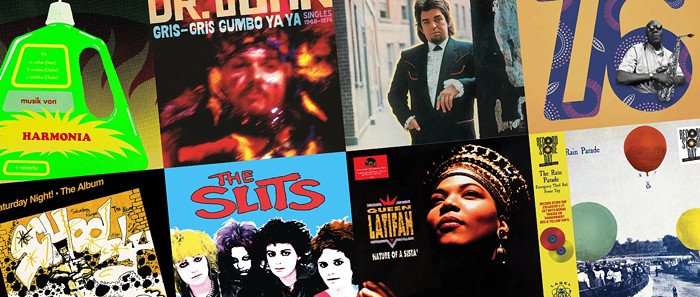Actor-vocalist Jane Birkin is an iconic figure you should know better. She appeared in the cult '60s films Blow-Up and Wonderwall and had a short-lived marriage to the phenomenal British film composer John Barry in the late '60s. In 1968, she began a tumultuous but productive 13-year artistic/personal relationship with French music legend Serge Gainsbourg, who fathered Charlotte Gainsbourg with her. Birkin's coquettish, breathy vocals fruitfully contrasted with Serge's suave, nicotine-ravaged pipes on 1969's risqué Jane Birkin/Serge Gainsbourg and 1971's immortal Histoire de Melody Nelson. The couple went on to collaborate on several more charming orchestral-lounge-pop and kitsch-funk records until Serge's death in 1991. Now she's touring to pay tribute to the man on the 20th anniversary of his passing.
What was the impetus to do this tour?
I'd gone to Japan to do a concert right after their tsunami and earthquake, plus nuclear disaster. I just went to be with the people who I've done tours with and had known for more than 40 years; I got my friend Sachiko to fix up a concert of solidarity. Then I came back to Paris and with my manager Olivier Gluzman, we got a concert off the ground at the Châtelet with names like Deneuve and Aznavour, live on radio. Gluzman then reminds me that for the 20th anniversary after Serge's death and 40 years after his Melody Nelson, I'd promised to do a tour in Europe, but especially the US.
I moaned that I didn't know what angle to take. How could his songs be revisited to make them exciting, with what arranger? Then I thought, hang on, suppose I ask Nobu [Nakajima], the wonderful pianist that I met that night in Tokyo [to do] the orchestrations. Nobu said yes, and so it all became exciting and found its meaning! [Horn player Shuichiro Sakaguchi, drummer Tsutomu Kuriha, and violinist Asuka Maret also play in her band.]
Why do you think Gainsbourg's music has endured the passage of time so well?
Because it's wonderful, because he was always 20 years ahead of his time. Melody Nelson was written and conceived 40 years ago; it didn't sell, but now it's everyone's favorite. His songs endure because they are timeless, [as] witty as Cole Porter, and as crafty with the language, poetic as Apollinaire... but so modern. He reinvented the French language.
What emotions do you feel when performing his music now, decades after these songs were recorded?
No more pain; just joy in sharing him, giving anecdotes, taking him round the world.
What are your favorite Gainsbourg compositions to sing, and why?
The ones he wrote for me: "Les Dessous Chics," "Fuir le Bonheur," "Baby Alone in Babylone." They are just so personal; I became his "female side." He could express his anguish and sorrow via and with me. It was fearful to do just after our separation, but our bond held true till the last album he wrote, Amour des Feintes. Six months before dying, he gave me this gift. This time I sing a song that he wrote 50 years ago, that I didn't know: "Les Amours Perdues"—a gem, and with the Japanese orchestra, "Ces Petits Riens," written well before my time, is just stunning... and very exciting.
Was it difficult to work with Gainsbourg? Can you offer any insights into his creative methods and his demeanor in the studio?
Ghastly! It always ended in tears. He got so cross when I couldn't do the rhythm, then so emotional, and cried profusely. [But] I did love him.
What factors led to your breakup with Gainsbourg?
Drink, time, then the beautiful young man who arrives, just when you think you're transparent, and says you can play psychological drama, [filmmaker] Jacques Doillon. But things [with Gainsbourg] had been rough for a few years—monotony of bars, nightclubs. [It was] fun at the beginning, but wearying 12 years later. [I experienced] a feeling of depression, but Serge was the one who said it was his fault (not entirely true), that he'd been impossible (true!), and we stayed friends until his death, and he was godfather to Lou [Birkin's daughter with Doillon], who I had a year after our separation. A rare story...
What is the biggest misconception about Gainsbourg?
That he was a clown. [Serge was] the funniest man to be with; his provocation was an integral part of his character. His shyness made him very attractive. His kind heart is rare amongst megalomaniacs, his generosity scarce in show business, but his talent is undeniable. [He is] the most missed man in France, who now regret what they hadn't understood at the time, and the likes of which we'll never see again. ![]()




















